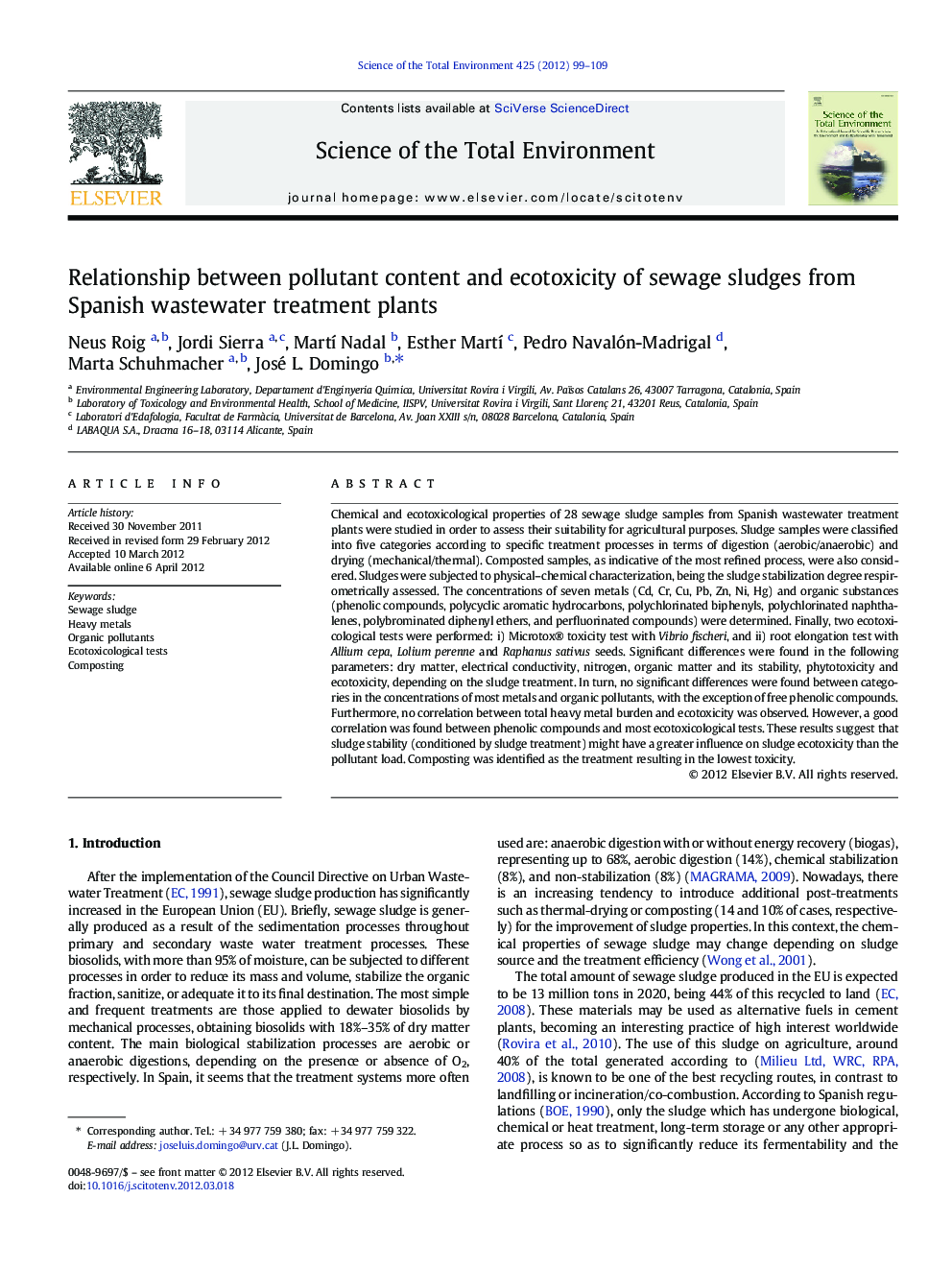| کد مقاله | کد نشریه | سال انتشار | مقاله انگلیسی | نسخه تمام متن |
|---|---|---|---|---|
| 4429518 | 1619826 | 2012 | 11 صفحه PDF | دانلود رایگان |

Chemical and ecotoxicological properties of 28 sewage sludge samples from Spanish wastewater treatment plants were studied in order to assess their suitability for agricultural purposes. Sludge samples were classified into five categories according to specific treatment processes in terms of digestion (aerobic/anaerobic) and drying (mechanical/thermal). Composted samples, as indicative of the most refined process, were also considered. Sludges were subjected to physical–chemical characterization, being the sludge stabilization degree respirometrically assessed. The concentrations of seven metals (Cd, Cr, Cu, Pb, Zn, Ni, Hg) and organic substances (phenolic compounds, polycyclic aromatic hydrocarbons, polychlorinated biphenyls, polychlorinated naphthalenes, polybrominated diphenyl ethers, and perfluorinated compounds) were determined. Finally, two ecotoxicological tests were performed: i) Microtox® toxicity test with Vibrio fischeri, and ii) root elongation test with Allium cepa, Lolium perenne and Raphanus sativus seeds. Significant differences were found in the following parameters: dry matter, electrical conductivity, nitrogen, organic matter and its stability, phytotoxicity and ecotoxicity, depending on the sludge treatment. In turn, no significant differences were found between categories in the concentrations of most metals and organic pollutants, with the exception of free phenolic compounds. Furthermore, no correlation between total heavy metal burden and ecotoxicity was observed. However, a good correlation was found between phenolic compounds and most ecotoxicological tests. These results suggest that sludge stability (conditioned by sludge treatment) might have a greater influence on sludge ecotoxicity than the pollutant load. Composting was identified as the treatment resulting in the lowest toxicity.
► The suitability of sewage sludges for agricultural purposes has been investigated.
► Sludge treatment had a significant influence on the dry matter content.
► Sludge treatment had a notable impact on phytotoxicity and bacteria toxicity.
► Composting was the treatment resulting in the lowest toxicity.
Journal: Science of The Total Environment - Volume 425, 15 May 2012, Pages 99–109